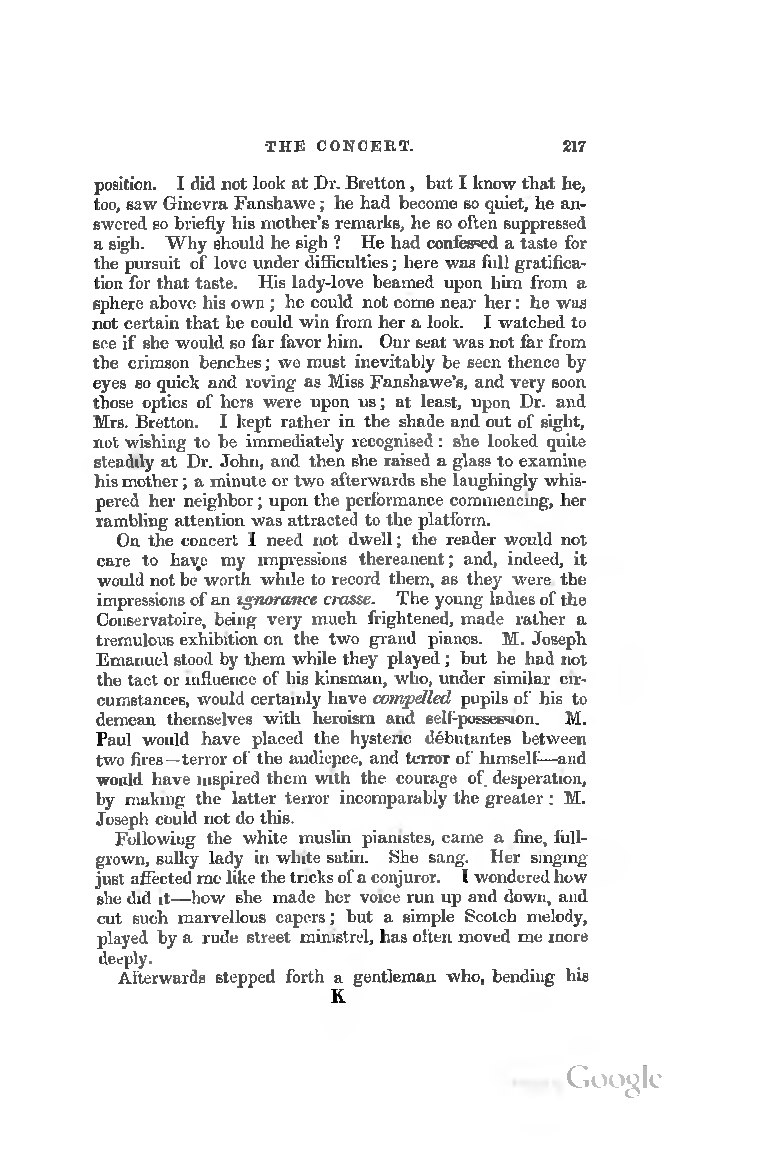position. I did not look at Dr. Bretton, but I knew that he, too, saw Ginevra Fanshawe; he had become so quiet, he answered so briefly his mother's remarks, he so often suppressed a sigh. Why should he sigh? He had confessed a taste for the pursuit of love under difficulties; here was full gratification for that taste. His lady-love beamed upon him from a sphere above his own; he could not come near her: he was not certain that he could win from her a look. I watched to see if she would so far favor him. Our seat was not far from the crimson benches; we must inevitably be seen thence by eyes so quick and roving as Miss Fanshawe's, and very soon those optics of hers were upon us; at least, upon Dr. and Mrs. Bretton. I kept rather in the shade and out of sight, not wishing to be immediately recognized: she looked quite steadily at Dr. John, and then she raised a glass to examine his mother; a minute or two afterwards she laughingly whispered her neighbor; upon the performance commencing, her rambling attention was attracted to the platform.
On the concert I need not dwell; the reader would not care to have my impressions thereanent: and, indeed, it would not be worth while to record them, as they were the impressions of an ignorance crasse. The young ladies of the Conservatoire, being very much frightened, made rather a tremulous exhibition on the two grand pianos. M. Josef Emanuel stood by them while they played; but he had not the tact or influence of his kinsman, who, under similar circumstances, would certainly have compelled pupils of his to demean themselves with heroism and self-possession. M. Paul would have placed the hysteric débutantes between two fires—terror of the audience, and terror of himself—and would have inspired them with the courage of desperation, by making the latter terror incomparably the greater: M. Josef could not do this.
Following the white muslin pianists, came a fine, full-grown, sulky lady in white satin. She sang. Her singing just affected me like the tricks of a conjurer. I wondered how she did it—how she made her voice run up and down, and cut such marvelous capers; but a simple Scotch melody, played by a rude street minstrel, has often moved me more deeply.
Afterwards stepped forth a gentleman who, bending his

